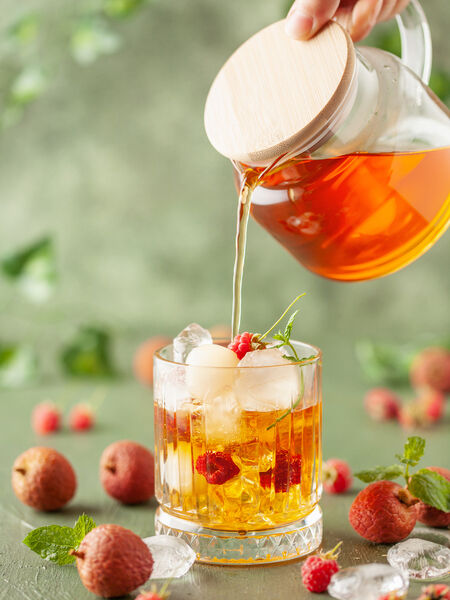Drinking Health: Amino Acids and Stimulants

Enzyme Changes and Antioxidants
Oxidation of tea leaves provides an additional benefit in the presence of other positive antioxidants: theaflavins and thearubigins. These are polymeric polyphenols that are formed when oxidation changes the enzymes present in the leaves.
Rare Amino Acid
Tea has an extraordinary element, L-theanine, an amino acid that only appears in the leaves of Camellia sinensis. It is what gives calm alertness to our bodies. This is because L-theanine boosts alpha wave activity in the brain. This amino acid appears in white and green tea leaves.
Stimulants in Tea - Less than Coffee
Caffeine appears in much smaller quantities in tea than theine and theobromine which give tea drinkers the "lift" and energy they can feel. The quantity is one-half to one-third of caffeine in coffee. Even though the amount of stimulants in tea is higher per pound than that of coffee, the stimulants are always less per cup for tea than for coffee because a pound of tea can make so many more cups. For example, a pound of tea usually produces 180-200 cups and a pound of coffee can make only 40 cups.
How theine and theobromine impact us is not a generic experience but one that is related to our own individual body chemistry. The same unique reaction is evidenced in those who drink coffee, so following the dictates of our own bodies is essential to understanding how much tea (or coffee) we can comfortably drink per day.
Tea: the No-Calorie Beverage!
Tea has no calories. Adding flowers and herbs, something that has been done since tea was first consumed in China, creates a negligible increase in calories. The stats change when sweeteners and milk are added. The beverage then can have between 20 and 60 calories, which is still a modest amount. Synthetic sweeteners may compromise the integrity of the tea's flavor and may add a chemical aftertaste. Many teas have a naturally sweet edge to them that can be quite satisfying; this may be reason enough to try tea plain before adding sweeteners of any kind.
Decaffeinated teas, decaffeinated and regular bottled teas from concentrates, and teas made from fannings and dust (versus those made with whole leaf tea) have considerably fewer, if any, antioxidant qualities. Bottled teas from brewed tea leaves have similar amounts of antioxidants to freshly brewed teas from leaves.
Tea alone cannot fight disease or improve health. Tea must be complemented by a lifestyle that incorporates regular exercise, enough sleep, a diet with anti-oxidant rich vegetables and fruits, high-quality proteins, and small amounts of fats and sugars.
 teaclass
teaclass
